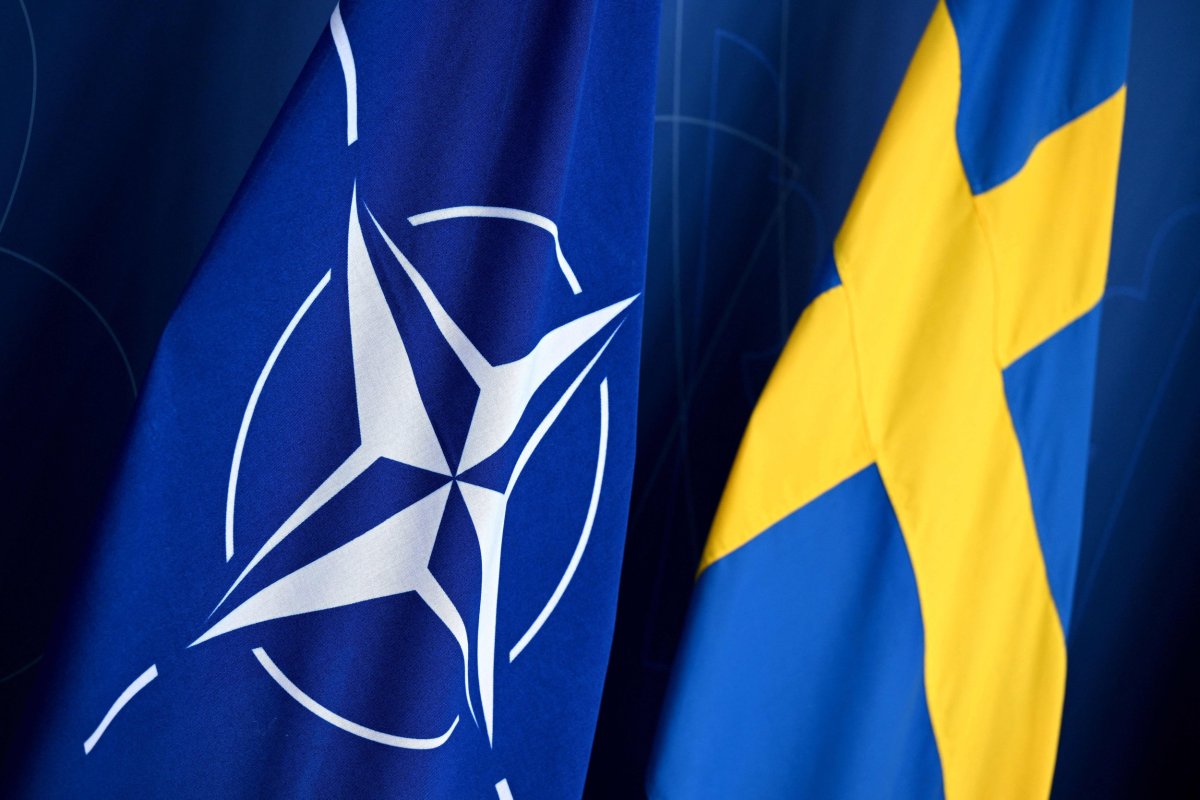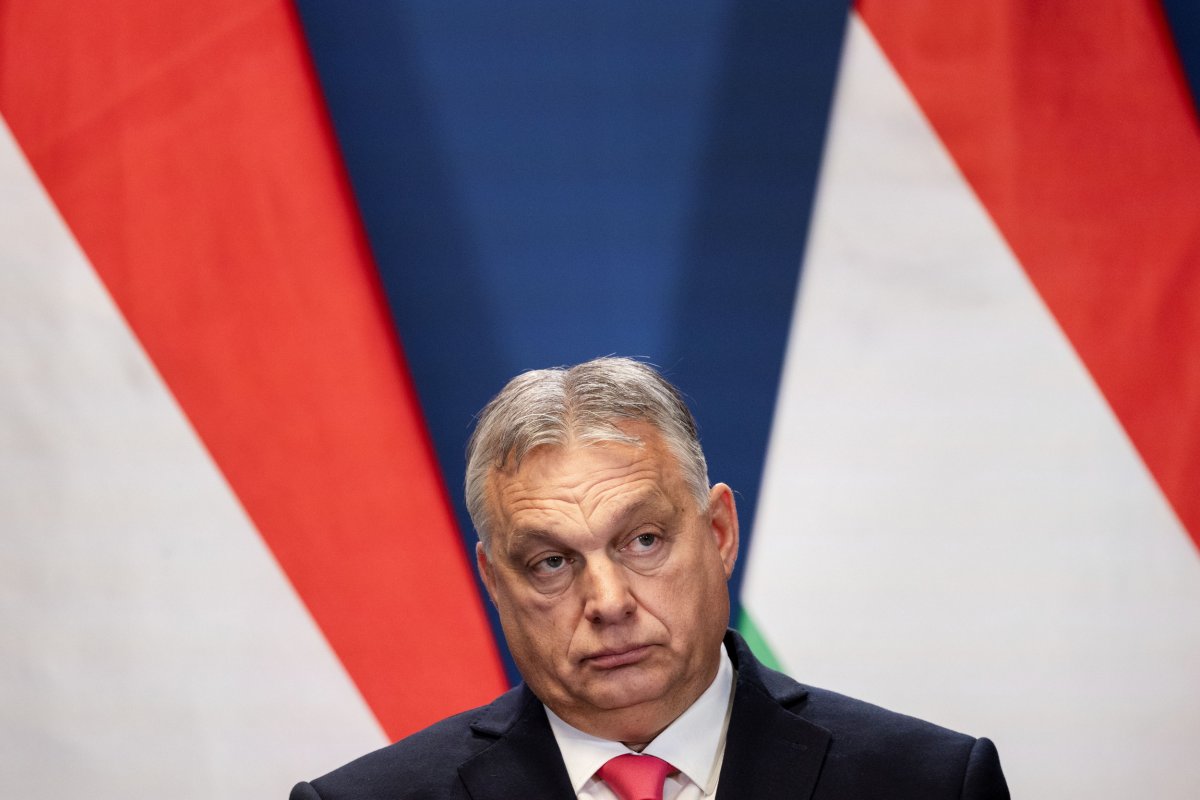Only Hungary now stands in the way of Sweden becoming NATO's 32nd member, a position the Putin ally had vowed not to be in, after the Turkish parliament ratified Stockholm's bid Tuesday and ended three months of gridlock.
Hungarian Prime Minister Viktor Orbán—often criticized as a Russian "Trojan horse" within the European Union and NATO, given close and resilient ties between Moscow and Budapest—has long said that his country would not be the last ally to ratify Swedish membership. But the Hungarian parliament is now the only legislative body within the NATO member states not to have given its approval for Sweden's accession.
Orbán's Wednesday appeal for his parliament—which is in recess until February 15—to proceed with ratification "at the first possible opportunity" appeared a sudden climbdown, his offer of further accession negotiations having been quickly dismissed by Stockholm after the Turkish vote.
"NATO and Sweden are calling his bluff," Zsuzsanna Végh, a visiting fellow at the German Marshall Fund, told Newsweek. "There is no credible reason to hold up the ratification," she added. "With Turkey ratifying the bid, there is no further room to hold this back. So, I think we can expect that this is going to go ahead."
Newsweek has contacted Orbán's office by email to request comment.

Calling Orbán's Bluff
Orbán has long been seen as a brake on collective EU-NATO decision-making on Ukraine and Russia. In December, for example, the prime minister was the lone holdout blocking a proposed $55 billion multi-year aid package for Kyiv. Budapest has also pushed back on the EU's evolving sanctions campaign against Moscow, and Orbán has repeatedly called for Ukrainian concessions to end the Kremlin's invasion.
Orbán's government is keen to protect lucrative economic ties with Moscow—especially the cheap gas, oil and nuclear fuel on which Hungary's economy remains dependent—while pushing the EU into releasing billions in funds frozen due to concerns about the deteriorating rule of law in the central European nation. Though the EU released almost $11 billion in withheld funding in December, Orbán wants more.
Indeed, Orbán and his officials cited Swedish remarks about the rule of law in Hungary as one reason to delay Stockholm's NATO bid. Government spokesperson Zoltan Kovacs in March said Swedish representatives had been "repeatedly keen to bash Hungary through diplomatic means, using their political influence to harm Hungarian interests."
But the sudden Turkish ratification left Hungary exposed.
"From a Hungarian perspective, there was no reason at all to engage in this game, and I think that created quite a confusion in Hungary," Zsuzsanna Szelényi, a former member of the Hungarian parliament and now a director at the CEU Democracy Institute in Budapest, told Newsweek.
"I think it was a bluff," Szelényi—the author of Tainted Democracy, Viktor Orbán and the Subversion of Hungary—added, noting the absence of substantive demands from Budapest.
"My analysis is that they tried to use this to pressurize the European Union into providing the funds withdrawn from Hungary," she said. "It was a very transactional action."
Orbán's media loyalists, meanwhile, "presented it to Hungarians as a Hungarian initiative to offer the membership," Szelényi said. "Their storytelling is different from reality."

Experts and officials who spoke with Newsweek suggested that Hungarian ratification will come relatively soon, though not immediately. Budapest must wait for parliament to reconvene next month, and the prime minister and his allies may decide to delay further to make a point.
"I suppose it will be made clear to them not to 'rock the boat,'" one European diplomatic official—who spoke to Newsweek on the condition of anonymity as they were not authorized to speak publicly—said. "Hungary promised not to be the last one to ratify, so probably they move fast."
But a second European diplomatic official—who also requested anonymity to speak candidly—told Newsweek they were "less optimistic."
"They expect Sweden to show some signals of remorse for criticism of Orbán's policies," the diplomat said, noting Budapest's grievances over the rule-of-law debate. Ratification will happen, the official predicted, but only after a "face-saving delay."
Peter Kreko, a Hungarian political scientist and the director of the Political Capital Institute, told Newsweek: "I'm not sure we can take it for granted that the Hungarian parliament will just pass it automatically, very soon without any delay."
"The pressure on Hungary is enormous at the moment not to stand in the way of Sweden's accession. But I think Orbán can still play this game for a while, I don't think he can play it forever."
Orbán's resistance to Swedish membership has thus far been "absolutely irrational," Kreko said, making it difficult "to predict, based on any rational consideration, why and how Orbán is going to drop it." He added: "Hungary has not articulated any clear demands, therefore their demands cannot be met."
Europe's Pariah
It's unlikely, however, that Orbán's support for Swedish accession marks a new era of seamless cooperation between Budapest and the Brussels blocs.
"Going through with approving Sweden's NATO accession is not a change of heart," Végh said. "It doesn't mean that his positions would change when it comes to sanctions when it comes to overall support for Ukraine."
EU leaders are due to meet in Brussels next week to discuss the $55 billion aid package held up by Orbán in December. EU states have been considering workarounds to nullify the Hungarian veto, but emerging reports this week suggest Budapest might even drop its controversial opposition.
Finnish Foreign Minister Elina Valtonen said on Thursday that her Hungarian counterpart Péter Szijjártó "gave us a positive signal" about the proposal earlier this week. "And I'm very hopeful that we will finally be able to approve aid for Ukraine. If not, we will find another solution," she added.
Végh said Orbán is approaching a dangerous threshold. "European partners essentially need to prepare a plan B, an alternative that ensures that the agenda can go ahead without having Hungary on board," she said. "What Orbán has been doing is pure blackmail, and it's just getting worse over time."

Orbán's efforts to block or water down sanctions on Russia have been particularly exasperating for his European and NATO allies.
"There have been demands, like removing certain Russian oligarchs and also Patriarch Kirill from the sanctions, where there is no Hungarian interest whatsoever," Végh said. "These were signs that he's not using the veto as it's intended, namely, to protect the national interest."
"These moves very much contributed to the thinning of that patience," Végh added. "If he's not acting in the interests of his own country, then he's acting in the interests of someone else."
"His positions favor Russia's interests, and it's not in the European Union's interests to accommodate that beyond a certain point. And I think we have reached that point."
Earlier this month, a majority of members of the European Parliament backed a nonbinding resolution urging the bloc's other 26 states "to take action and to determine whether Hungary has committed serious and persistent breaches of EU values," up to and including stripping Budapest of its EU voting rights.
"I think it is telling that those countries—that are the closest allies of Hungary—would consider it better to not have Hungary as part of the club and around the table right before Hungary's EU presidency," Végh said. "I think this is a very, very strong political message, although the reality of it is indeed not likely."
This year could prove a pivotal one for Hungary, and for Europe more broadly. European Parliament elections will take place in June, with polls indicating a surge for the continent's anti-establishment right-wing parties. Hungary will assume the European Council's rotating presidency in June, just as current Council President Charles Michel steps down to run in the parliamentary elections.
Americans, too, will go to the polls in November, likely to choose between the chauvinist isolationism of former President Donald Trump and the pro-European globalism of incumbent President Joe Biden.
"There are plenty of things happening that the Hungarian government is preparing for," Szelényi said. "Orbán wants to show his strengths as European leader."
But the populist prime minister's NATO maneuvering—and Hungary ending up as the final holdout on Sweden's bid—may undermine that image. "It's always important for Orbán not to be alone," Szelényi. "He's aware that Hungary is a small country, in the EU and even more so in NATO."
"The Hungarian government, in general, plays a very disciplined role within NATO. Until the Ukraine issue, Hungary was always very prudent and committed. For example, Hungary always sent troops wherever needed. We always sent more people to operations when requested."
"It's important in U.S.-Hungarian relations that Hungary is a very disciplined NATO member. It's actually the most important element of the Hungarian-U.S. relationship, because otherwise Hungary is just too small."
"The whole Swedish game didn't help," Szelényi said. "It definitely harmed him at the political level with NATO. And, of course, the fact that the Turkish just didn't give a damn about informing the Hungarian government about their decisions, either before the Vilnius summit in summer—which was a surprise to the Hungarian government—or now."
The prime minister's approach could prove mutually problematic, Kreko said. "Orbán is increasingly playing with 'Putinian' foreign policy, where you do not really clearly articulate your demands. You just try to be a an important stakeholder in every decision.
"He does not want to give any of his votes for free," Kreko said. "I think this is an ego game for Orbán as well. He wants to be taken seriously."
"I do think that it's totally self-destructive," Kreko added. "It's a bit of destructive to NATO as well, because NATO is built on trust." Even if Orbán does come on board with Swedish accession, "I think the damage has been already done," Kreko said.
1/25/24 9:50 a.m. ET: This article has been updated to include comment from Peter Kreko.
Uncommon Knowledge
Newsweek is committed to challenging conventional wisdom and finding connections in the search for common ground.
Newsweek is committed to challenging conventional wisdom and finding connections in the search for common ground.
About the writer
David Brennan is Newsweek's Diplomatic Correspondent covering world politics and conflicts from London with a focus on NATO, the European ... Read more
To read how Newsweek uses AI as a newsroom tool, Click here.






